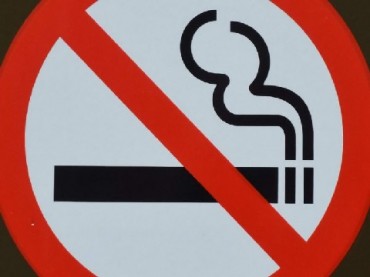
If caught, users could be fired
COLUMBIA, Mo. – University of Missouri Health System is rolling out a new “nicotine-free hiring policy” that forbids new employees from using nicotine – on or off the clock.
Come Jan. 1, the system will no longer hire people who use any form of nicotine, will test for nicotine during pre-employment drug screenings, and can fire employees if it’s sniffed out later that they misled human resources, according to the policy.
As The College Fix previously noted, banned products include cigarettes, cigars, pipes, chewing tobacco, snuff, clove cigarettes and electronic cigarettes, MU health officials say.
A memo on its employment website tells candidates they “must certify that they do not and will not use nicotine products during their employment with MU Health Care, both on and off duty.” If caught later, they could be fired.
Its officials have called the new policy “a natural progression” as health care gravitates toward “wellness and prevention,” but some argue it’s an invasion of privacy and could lead to similar policies on the obese or other lifestyle choices.
University of Missouri Health Care operates medical facilities across the state. Under its new policy, applicants will be asked if they use nicotine products. If they say “yes,” they will be given info on how to quit and invited to re-apply in three months.
“If we suspect that an employee who is hired after the implementation of this policy goes into effect is using nicotine products, we will follow our normal disciplinary process,” Mary Jenkins, spokeswoman for MU Health Care, told The College Fix by telephone. “Our normal disciplinary process could include drug screens, written warnings, and terminations if the actions [nicotine use] continue.”
The policy will be grandfathered in, essentially exempting current employees. However, it will allow employees and their families to reduce their health care insurance premiums if they permanently snuff their butts.
Some have concerns about the new policy.
“[I’d] hate to see any employer assume that he or she has the right to control their employees’ behavior 24/7,” Dan Viets, president of the Missouri Civil Liberties Association, told The College Fix in an email. “Drug testing is leading to more and more of this.”
Viets also raised the specter that the ban on hiring nicotine users could disincentivize future brilliant doctors and health practitioners from serving patients who go to the University of Missouri Health System for help.
“There are certainly good health care workers who smoke tobacco and it is reasonable to assume they will choose to work elsewhere,” Viets said.
There is also the concern that this policy might lead to others, wherein the university will also start to prohibit all risky behavior or lifestyles by employees.
Mary-Kate Baumann, a graduate student at the University of Missouri’s school of journalism, said she believes the policy is a slippery slope.
“Since overeating, much like smoking cigarettes, leads to health problems, who is to say that this policy won’t open the door to health centers turning away future applicants who are obese?” Baumann told The Fix.
That sentiment has been echoed by Lewis Maltby, president of the National Workrights Institute, who has fought against the practice and told the New York Times in 2011 “there is nothing unique about smoking. The number of things that we all do privately that have negative impact on our health is endless. If it’s not smoking, it’s beer. If it’s not beer, it’s cheeseburgers. And what about your sex life?”
The Times article noted that the shift “from smoke-free to smoker-free workplaces” is growing more common.
“There is no reliable data on how many businesses have adopted such policies,” it reported. “But people tracking the issue say there are enough examples to suggest the policies are becoming more mainstream, and in some states courts have upheld the legality of refusing to employ smokers.”
Smoking moratoriums in public places are also becoming more common.
As of Oct. 1, Americans for Nonsmokers’ Rights recorded 1,477 universities that banned tobacco use on campus, far up from 586 in October 2011. Twenty percent of these schools include e-cigarettes, which emit vapor rather than smoke, in their smoke-free campaigns.
The ban on nicotine-using employees at the MU Health Care system, and the subsequent smoking ban at the University of Missouri, has also kick-started a campaign to increasing the smoking age from 18 to 21.
College Fix contributor Christopher White is a University of Missouri graduate student and an editorial assistant for The College Fix.
Like The College Fix on Facebook / Follow us on Twitter
IMAGES: TomMagliery/Flickr




Please join the conversation about our stories on Facebook, Twitter, Instagram, Reddit, MeWe, Rumble, Gab, Minds and Gettr.